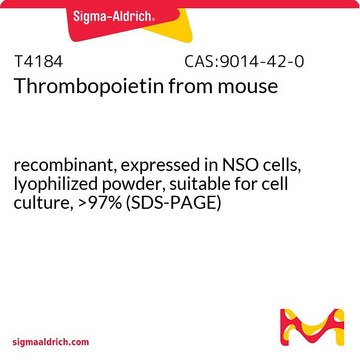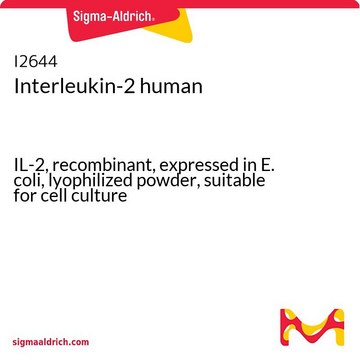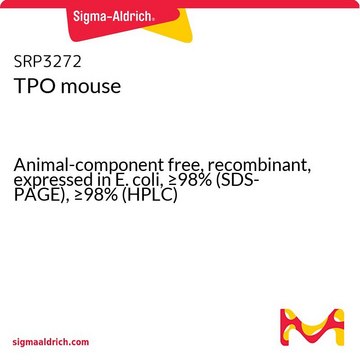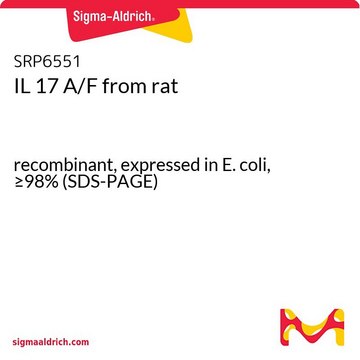SRP3236
TPO from mouse
recombinant, expressed in E. coli, ≥98% (SDS-PAGE), ≥98% (HPLC), suitable for cell culture
Synonym(e):
MGDF, Megakaryocyte colony-stimulating factor, Thrombopoietin, c-MPL Ligand
About This Item
Empfohlene Produkte
Biologische Quelle
mouse
Rekombinant
expressed in E. coli
Assay
≥98% (HPLC)
≥98% (SDS-PAGE)
Form
lyophilized
Wirksamkeit
<1.0 ng/mL ED50
Mol-Gew.
18.7 kDa
Verpackung
pkg of 10 μg
Methode(n)
cell culture | mammalian: suitable
Verunreinigungen
<0.1 EU/μg endotoxin, tested
Farbe
white
UniProt-Hinterlegungsnummer
Versandbedingung
wet ice
Lagertemp.
−20°C
Angaben zum Gen
mouse ... THPO(21832)
Allgemeine Beschreibung
Biochem./physiol. Wirkung
Sequenz
Physikalische Form
Rekonstituierung
Lagerklassenschlüssel
11 - Combustible Solids
WGK
WGK 3
Flammpunkt (°F)
Not applicable
Flammpunkt (°C)
Not applicable
Hier finden Sie alle aktuellen Versionen:
Analysenzertifikate (COA)
Die passende Version wird nicht angezeigt?
Wenn Sie eine bestimmte Version benötigen, können Sie anhand der Lot- oder Chargennummer nach einem spezifischen Zertifikat suchen.
Besitzen Sie dieses Produkt bereits?
In der Dokumentenbibliothek finden Sie die Dokumentation zu den Produkten, die Sie kürzlich erworben haben.
Unser Team von Wissenschaftlern verfügt über Erfahrung in allen Forschungsbereichen einschließlich Life Science, Materialwissenschaften, chemischer Synthese, Chromatographie, Analytik und vielen mehr..
Setzen Sie sich mit dem technischen Dienst in Verbindung.








